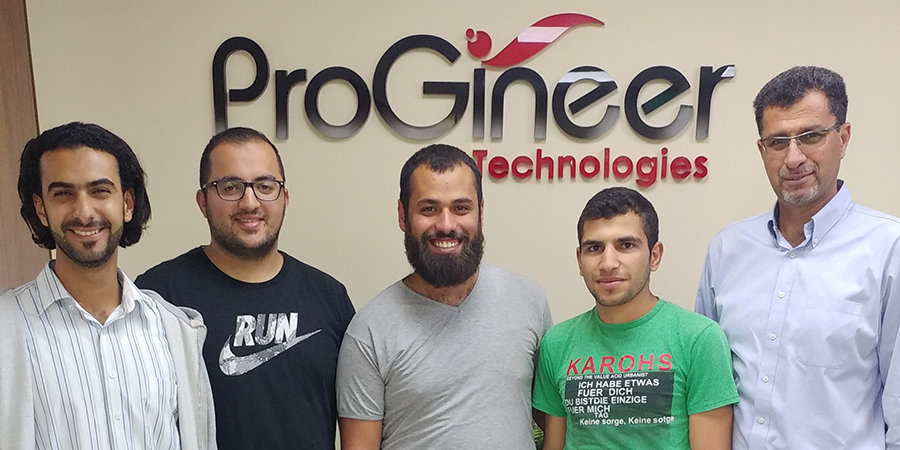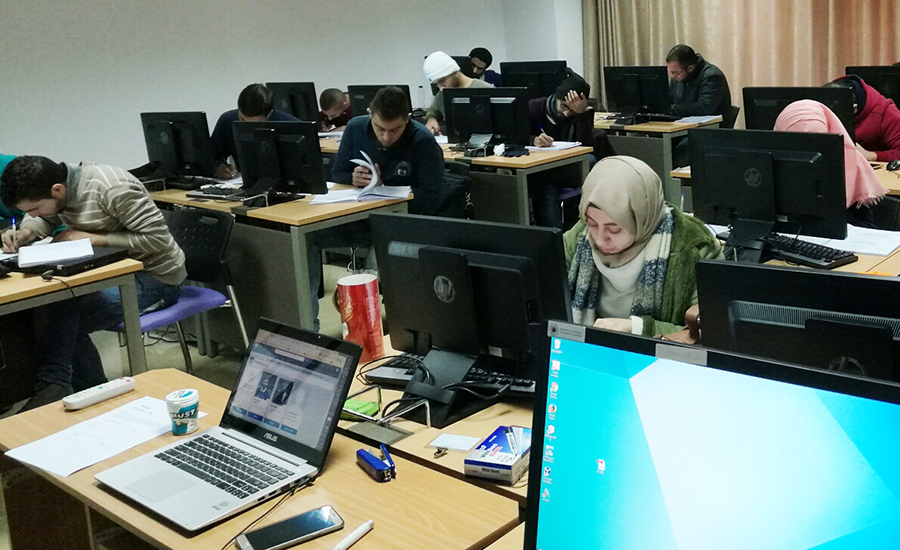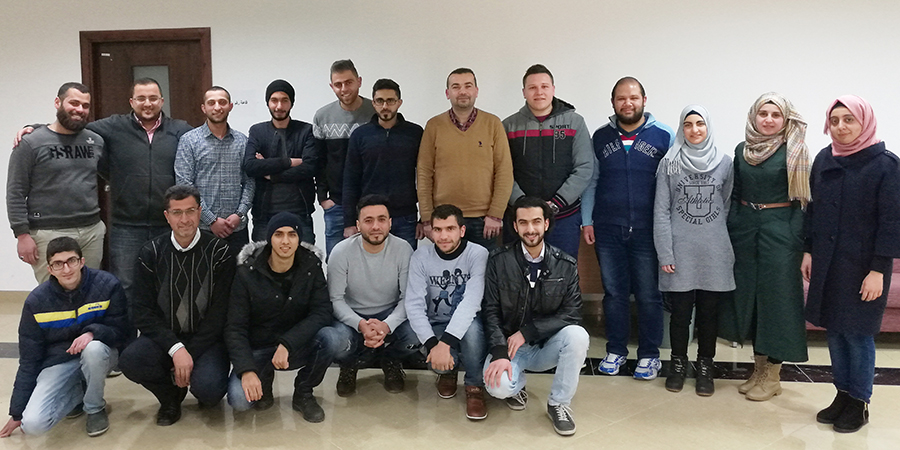DEVELOPMENTS
Sourcing the Wadi: How Palestinian Workers Are Filling Niche Needs in Israel’s IT Sector
Oct 17, 2017
The Middle East hosts one of the fastest-growing high-tech industries in the world: Israel’s Silicon Wadi. But the very speed of this growth means Israel’s tech sector also faces a shortage of skilled engineers. To deal with this shortage, Israel has turned largely to Eastern Europe as a source for IT workers. Though there is plenty of talent in Eastern Europe, the time difference is not ideal for collaborating and that talent is becoming costlier as global demand increases. This combination of circumstances means opportunities for Palestinians.
The Palestinian Market Development Programme (PMDP) has seized upon this need by shifting Silicon Wadi’s sourcing focus close to home—to Palestinian IT firms. Funded by the U.K. Department for International Development and the European Commission, and in partnership with the Portland Trust, PMDP identified the verification of software for microchips—or design verification—as a niche area of demand that fits wells with emerging Palestinian service capabilities.

Based on business and workforce development, PMDP’s approach is beginning to pay off. A team of five software engineers at ProGineer in Ramallah recently won a subcontract to provide design verification for a multinational firm. The competitive award is a breakthrough for the Palestinian IT sector and showcases its ability to provide services to international clients.
What is Design Verification?
Global advances in computer hardware have forced semiconductor design to become more sophisticated. Higher-performing microchips utilize increasingly complex semiconductor designs, and this has spawned an entire industry specializing in design testing to increase performance and production efficiency. Israel—home to companies such as Intel, Cadence, Mellannox—is a world leader in design verification technology.
Why Choose Palestinian Companies?
A closer look at the market opportunity revealed certain factors advantageous to Palestinian firms, including physical proximity to clients in Tel Aviv and Jerusalem (allowing for same time-zone operation and local travel), lower costs than in Israel, and similar costs to Eastern Europe. While the market opportunity was clear, the Palestinian market remained undertested for design and verification services; prior to this engagement, only one service contract was being implemented by a Palestinian IT firm.
Palestinian IT firms have two factors working against them:
- Weak links and lack of awareness of business opportunities with multinational companies in the region; and
- Limited local opportunities to gain experience and professional training in design verification.

When the Palestinian value proposition was presented to Israel-based multinational companies, Cadence, a provider of system design tools and software, expressed strong interest. Based upon this reaction, PMDP and The Portland Trust teams designed a three-stage intervention—applying DAI’s principles of market systems development—aimed at stimulating commercial transactions between Cadence and Palestinian providers:
- Testing the waters: Portland Trust asked Cadence to outline its service requirements and agree to a three-month “mock project” to test Palestinian capabilities. Four local Palestinian firms—Exalt, Progineer, Unit One, Appstown—put together teams of five members each to complete the test project.
- Training time: A one-month, in-classroom training in system-design skills and testing software was delivered by a leading provider, Variest. The four Palestinian companies nominated 18 staff members to be trained. Feedback from the training was encouraging, with most of the participants scoring well on the end-of-course exam.
- Mock projects: Following evaluation of the training, Cadence invited two teams to enroll in mock projects involving a live design-verification challenge. Eleven engineers from two shortlisted teams participated in the projects remotely over three months, with weekly visits to the Cadence campus.
A Deal is Struck
Impressed by the mock project performance, Cadence extended its agreement to Progineer, creating five high-quality, full-time jobs—one team leader and four junior programmers—in Ramallah. This purely commercial engagement is a breakthrough for the Palestinian IT outsourcing industry. It proves the business value that Palestinian service providers can deliver to international clients, and showcases a model for how IT outsourcing can grow through effective structuring of support.

Sustainable growth of the design-verification service line hinges upon Progineer successfully delivering results to Cadence and expanding to serve additional clients. Meanwhile, the other Palestinian firms—Exalt, Unit One, and Appstown—also have potential to tap market opportunities after taking design-verification training. “As awareness of Palestinian design-verification capabilities grows, there will be more interest from buyers, and local business development capabilities will grow stronger,” said PMDP Team Leader Maher Hamdan.
PMDP plans to nuture this interest by supporting the growth of existing services, fostering additional business connections, and making design-verification training locally available. The team also plans to work with Palestinian universities to introduce design-verification courses to the IT curricula to further stimulate a generation of marketable IT employees.